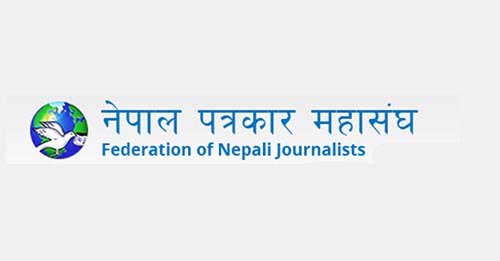2020, a tough year for Nepali journos, says FNJ
KATHMANDU, DECEMBER 31
The Federation of Nepali Journalists today said 2020 had been the most challenging year for working journalists and their families due to the unprecedented public health crisis caused by the COVID-19 pandemic.
According to FNJ, journalists worked on the frontline and were vulnerable to coronavirus infection throughout the year. The umbrella organisation of Nepali journalists also said that mediapersons faced the double whammy of COVID-19 and deprivation of regular salary, pay cut, forced unpaid leave, dismissal from job and unnecessary transfer to coerce them into resigning. It caused financial hardship to the families dependent on journalists.
Despite being infected or at risk of being infected due to the nature of their work, journalists had been compelled to bear the expenses for PCR tests even when they were deprived of regular pay.
Journalists were impacted by injustice at the hands of media houses and inaction of the government to strictly enforce the existing law. Section 20 of the Working Journalists Act guarantees that service and facility of journalists shall not be altered or changed in a manner to affect them. Despite these, the government failed to announce relief package and subsidy for journalists and media houses were hit hard by the pandemic.
FNJ informed that as many as 513 journalists had been infected with COVID-19 across the country due to the nature of their work. Of them, two succumbed to the contagion. The government registered the Public Service Broadcasting Bill and Media Council Bill in the Parliament with anti-press provisions, disrespecting the suggestions of the media fraternity and other stakeholders.
FNJ has also painted a bleak picture of press freedom in the country over the past one year as media and journalists were frequently targeted by the government to silence them. It recorded as many as 52 incidents of press freedom violation in 2020, compared to 50 in 2019.
According to the FNJ, there were nine incidents of attack on journalists.
Similarly, they were 32 incidents of threat against journalists in relation to their work. “The authorities arrested five journalists, while four incidents were related to seizure of newsrooms. Two cases of press freedom violation were related to professional insecurity,” said a report released by FNJ.
As per the World Press Freedom Index published by Reporters Without Borders, Nepal had dropped six places on the global Press Freedom Index to rank 112th out of 180 countries for 2020. The country had ranked 106th on the index released by Paris-based Reporters Sans Frontieres in 2019.






